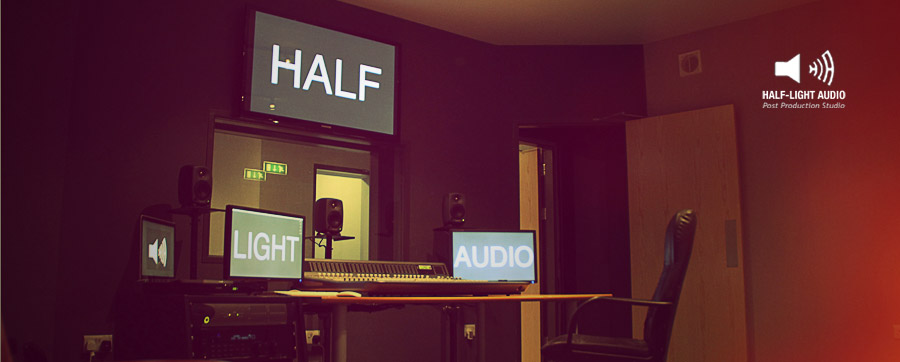
by SeanBreathnach | Jun 11, 2012 | Education
New sound studio opens in Munster
We interviewed Conor Barron of Half-Light Audio to find out about himself, his work and the sound studio he has opened in Cork city.
 Conor, tell us a little about yourself:
Conor, tell us a little about yourself:
Music and sound have always played a central role in my life, and at an early age I also developed a fascination with the technology involved. Like many people I played some instruments and began writing music and playing with bands around Cork, but it didn’t take me long to figure out that I had more of an interest in working behind the scenes. I began dividing my time between live sound engineering and recording demos for bands from a small studio in town. Eventually I went to study Music Technology in the University of Limerick which brought together the creative and technical elements of sound and music in a meaningful way. Not long after I got a job in Bristol, UK, working as a Creative for Apple Retail where I was exposed to the world of media production. I returned to Cork with a plan to build a sound studio and work in the audiovisual industry here.
What is your job description?
In my role as owner of Half-Light Audio I wear many hats. I look after the technical audio requirements of film projects such as sound editing and mixing, as well as composing and recording music for picture. Each project brings a unique set of challenges and I enjoy the problem solving elements of my work. I find that networking is also vitally important to my job. Getting out there and meeting others in the industry can be hugely rewarding and gives me a chance to escape the
confines of the studio for a while!
Can you tell us a little about how you got into movie audio, and your audio career so far?
While working in Bristol I had the good fortune to meet and work alongside some very talented folks working in the picture industry. I collaborated on a handful of projects and was bitten by the bug. Back home in Cork I advertised my services and was encouraged by the positive response I received.
Is there an area of sound/audio development that you’re particularly drawn to?
It’s hard to say really. I enjoy working with others and helping them bring their projects to the next level. In terms of individual sound and music tasks I take each stage as it comes and give each one the attention it deserves to achieve the overall goal. If you were to really pin me down I would say that I enjoy the pre-production stage because a blank canvas is one of the most terrifying/ exhilarating things in the world!
You also compose soundtracks. Can you tell us a bit about that?
Music for film is a strong passion of mine. Even though I’ve only been composing film scores for two years now it’s been a dream of mine for a long time. When I was young I remember turning down the volume on the television and playing guitar along to the picture. It’s a privilege to work with some of the fantastic film making talent here in Cork and to be trusted with scoring their films. I enjoy the collaborative element of film making and there is a true synergetic effect that can be achieved when a composer works closely with the director of a film in creating a soundtrack.
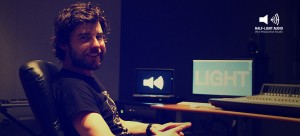
Have you particular advice to give amateur film makers regarding audio in their movies?
Plan ahead! Professional film makers will bring their location sound recordists along with them when scouting locations. The purpose of this is to spot any potential sound problems. Examples of this may be excess traffic noise in an outdoor location, noisy electrics in internal locations. Even if you don’t have a sound recordist these are things you can do yourself, all you need is a pair of ears! Most film makers will be slow to change a film’s location purely because of sound problems, but knowing where the potential pitfalls lie might make the difference between a horrific audio track and a useable one.
Have you an opinion on recording sound direct to camera?
If your only option is to record your audio directly to camera then I would recommend investing in a decent external microphone. Many cameras support a single external sound source for the simple reason that on-board microphones usually aren’t of the greatest quality. A single shotgun mic aimed directly at an actor will yield significantly better results than an on-board camera in the same position. Without getting too technical the shotgun mic can target a sound source from a distance (i.e. without being visible in the shot) whereas an on-board mic would have to be shoved up in front of the actor’s mouth to get the same results. Ultimately the benefit of a shotgun mic is a noticeable reduction in ambient noise on the soundtrack with more of a focus on dialog.
Do you think that sound in movies sometimes doesn’t get the respect it deserves?
I think that there are really two answers to that question. When a film is being shot, especially in lower budget productions, sound is often one of the last considerations to be made. This is usually to the detriment of the audio track. However, during screenings it suddenly jumps up and becomes one of the first things to be noticed. Film makers are generally very visual people and most of their focus when it comes to production is on the picture. If you feel that you fall into that
category then the two wisest investments you can make in regards to your soundtrack are an experienced location recordist and sound editor.
Are there any movies in particular that stick out in your mind as being notable for their use of sound?
I have a very short term memory for these kind of things, so instead I will say the most recent film I watched with great sound was Super 8. Sound design was done by the venerable Ben Burtt and the team at Skywalker Sound, and it is a masterclass in restraint and controlled excess. Chaotic explosions are interjected by uneasy silences which makes a refreshing change from the ‘wall of sound’ technique that would have been used by so many others.
What are the main creative / technical challenges you faced in achieving your vision? Do you find the same challenges cropping up on each of the movies you work on?
I think the truthful answer here is probably budget shortages. Many film makers have difficulty raising the finance needed to get their ideas from their heads and onto the screen. Lack of funding means that compromises are made along the way. In sound, for example, the full complement of audio production for a feature film might be location recording during shooting, and then during post production dialog editing, ADR, foley, sound design, sound effects editing and ultimately mixing. Short film projects that reach my desk usually have had a location recordist involved and that is an excellent starting point. With minimum budget you can really shine up those audio tracks in the edit, but if you are trying to get the ‘big sound’ achieved in commercial features then funding is a must.
Can you tell us a little about what you are currently working on?
Right now I am writing and recording the music score for Mark Cogan’s latest short film, ‘Partly Cloudy’. Mark and I worked together before on his previous short, ‘All Night Long’ which screened as part of the short film corner at Cannes 2012. Mark has a great talent for keeping the energy flowing in his films, something which only experience can teach you. This film score also sees the return to our studio of Holly McConnell on lead violin, accompanied by the Half-Light Quartet.
There seems to be a buzz building around film making in Cork. Have you found this to be true?
Absolutely. The past year alone has seen the launch of the Southern Screen Professionals, the Cork Screen Commission, two post production studios, and a wealth of talent continuing to grow their skills in the industry. Up until now film making in Cork has been fragmented, but now we are seeing more of a joined-up approach which is the foundation of sustainable growth in the region.
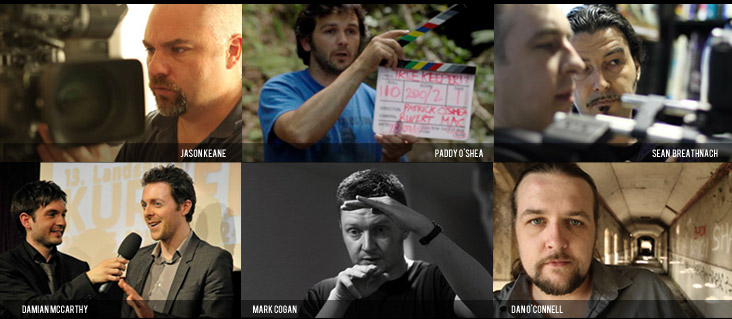
by SeanBreathnach | May 19, 2012 | Education, featured, Short film
We interviewed some local independent filmmakers to find out what drives them, what barriers they need to overcome, and what they think of the filmmaking buzz which is currently gripping Cork.
Click here to read the first part of the article
The Interview: Part 2
6. What advice would you have for anyone who wants to get into the movie making business?
Jason: Make sure you’re doing it for the right reasons! There will be many lean years before hopefully you will be able to make a successful living from it. The only thing that will sustain you during these years will be passion and love for the craft and medium. You really have to love it. In fact, it’s more like a vocation than a career.
Damian: If you can’t attend a film school then go along to film appreciation classes. Watch as many different films as you can. Write everyday. Put work into coming up with original ideas. Shoot something and learn how to edit it. There are loads of free tutorials online. Just start making short films. The first 5 or 6 will be really bad so don’t worry too much about them. I have never seen anybody made a good first short film. You just have to look at what worked and what didn’t and learn from it. I would also never abandon a film even if you know half way through the edit that it’s terrible. People helped you make it so the least you can do is finish it to the best possible standard.
Dan: Do it. It’s a blast. But don’t expect anything back, only what you put in.
7. What was the biggest challenge regarding your most recent film?
Seán: With ‘Searching For Ten’ it was probably locations. I had particular locations in mind that had character that fitted the story. I looked at a lot of locations all over Cork andWaterford. Here’s where a locations manager would have been a big help! In the end though, lots of people came through for us. Vibes and Scribes were great, as were CIT and O’Keeffes grocery at St Lukes, along with John and AJ Finn. The people here are enthusiastic about supporting local films.
Dan: It was definitely the edit. It’s a fractured timeline, so the possibilities are almost endless, the biggest problem is you get so wrapped up in the edit that you forget the big picture, you loose your understanding of the film. In some ways it was great having so much freedom to throw shots around wherever you want, but you see the same shot over and over. How do you tell the story if the words lose their meaning.
Jason: I’ve just started DP’ing a feature for someone so this is a real challenge. It’s my first feature so it’s a big step-up from shorts, corporates and live events. Things have started well so hopefully it will continue in that manner. Good preparation is so important. Exciting times ahead!
Damian: I’m in the very early stages of my first feature film now so the script is definitely the hardest thing I’ve ever done. I’ve written feature length scripts before but they were a mess. Mainly because I just launched into them with no real plan. I approached this script better though. I worked on plot for 6 months before even attempting to write a single page of the screenplay. I took a lot of dialogue notes too so when it came to the actual writing of the script it was easier. If you start writing a 90 page screenplay without a plan you’ll be lost by page 20. We have one short horror set-piece shot so far and I’m really happy with the footage, but this one scene has somehow resulted in more rewriting. I don’t mind so much as long as I’m replacing good ideas with better ideas, or making changes that are going to make the film more entertaining, but it would be nice to say ‘the script is finished’. Done. The story has always been the same it’s just how it’s being told changes. I think it was George Lucas said that ‘films are never finished they are abandoned’ – I’m starting to think this is also true of the script.
8. Would you recommend festivals or the internet for promoting short movies?
Mark: Festival screenings can be great. Some are quite prestigious and it’s always nice to be selected for a programme, especially in other countries. However these days I think having your film online is a far better option. The world is literally your audience and it has potential to be viewed by far more people than if it were screened at a dozen festivals.
Damian: Festivals first then the internet. Film festivals are great exposure. Good way of making contacts too. I usually wait until the films have played in a number of festivals before putting them up online as some festivals don’t want to screen something that’s available online. Once it’s played in a few places the internet is great for giving it a longer life. I’ve had festival programmers invite some of my films to screen at festivals having seen it online so having a film online doesn’t mean its festival run is over either.
Jason: Both. Festivals are a great way to sell yourself and meet other filmmakers. Once your film has done the festival circuit then it’s always a good idea to upload it to Youtube and/or Vimeo. Who knows who might get to see it!
Dan: I think both are good options. I tend to hold mine back from the internet in the hopes that one day I might actually send one out to a festival. Once it’s up online you kind of ruin your chances of getting into a lot of them, but then if you get your film online and get a million bejillion hits! Then that’s way cooler than getting into even the major festivals. If your film is any good then you want your film to be SEEN by as many people as possible, that’s the most important thing.
9. Who would you say your biggest inspirations are in the film world (directors, actors, cinematographers, etc)?
Patrick: I take inspiration from lots of different areas of film. I do have my favourite film makers whose work I would seek out every time they release something new. For example, Pedro Almodovar, The Coen Brothers, Darren Aronofsky, Quentin Tarantino to name but a few and I would also constantly watch and re-watch old classics and in particular the films of Stanley Kubrick.
I also find inspiration in an actor’s performance, Michael Fassbinder in ‘Hunger’ for example or Colin Firth in ‘The King’s Speech’ or Imelda Staunton in ‘Vera Drake’.
More recently I was very inspired by ‘Tinker, Tailor, Soldier, Spy’. It is such a well rounded, well made film. The writing, the directing, the beautiful camera work and production design and the amazing performances.
Jason: I have many favourite directors but it was especially the films of Akira Kurosawa and Stanley Kubrick that inspired me at a young age and opened up a whole new world of cinema to me.
Dan: That’s like putting a bowl of rice crispies in front of me and asking which one is the tastiest! I simply cannot say. Suffice it to say, that if I have seen their work in a cinema, on a DVD I bought or if I actively sought them out to watch online then they have achieved far more than I have yet and they are all inspiration to me.
Damian: I like actors and directors that take chances and do something different. Some of my favourite films are films that, when they’ve finished, you don’t really know what to make of it but there’s something about it that makes you want to watch it again. I think a lot of Stanley Kubrick’s films were like that for me. It took a second viewing to realize what he was doing and twenty views later you’re still discovering something new. I think he said ‘real is good interesting is better’. It sums up his films well, especially in the strange performances he gets from his actors.
10. Could you summarise how you recruit your primary cast and crew?
Dan: I held auditions for my last film as I was actively trying to find some new faces. A good friend of mine, Eoin hAnnracháin helped me a lot. He set up the auditions and found some great acting talent form all over the country. The crew, all of them, are great friends of mine. I help them out on their films, and they help me out on mine. The crew can change from film to film but that’s only because we are doing it for free and we have to work around peoples schedules. Sometimes people are not available and you have to work around that.
Damian: Enthusiasm over experience… within reason. I work with people I get along with. I read in some filmmaking book you shouldn’t make a film with anybody you wouldn’t go on holidays with. I wouldn’t go that far but maybe replace ‘going on holidays with’ for ‘a night in the pub’ and I think it’s sound advice. Making films are fun but the shoot can be tough and you need to have people there you trust and that you can ask for help if you get stuck. I know the director is supposed to know everything but it’s reassuring to know you can ask for a suggestion and then decide on what is best. The director gets all the credit at the end of the day anyway!
Jason: When I lived in New York, I would use Mandy.com, Craigslist and NYCastings to cast actors but since I returned to Cork I have relied mainly on Egomotion.net and FilmmakersNetwork.ie. Word-of-mouth is always important too of course.
11. What camera did you use to shoot your latest film, and why did you chose it?
Damian: I’ve made films on 8mm to 16mm to the 7D and I think it’s a balance of whatever suits the look of the film and with whatever your Cinematographer is most familiar with. It is important what you film on, but I think what you’re filming, as in, what is in front of the camera is more important. Is your location interesting? Is there texture on screen? Is the lighting right? Do you have unusual props? These are always more important to me than what piece of equipment we’re actually using. You could shoot some terrible unwatchable show like Fair City on the most beautiful grainy 35mm film stock in the world. Won’t make it any better.
Mark: We used a Canon 7D. The quality is superb and being able to change lenses really gives your film that professional cinematic look and takes it to the next level. I’ve shot my last three films on the 7D.
Dan: We shot using a canon 7D and a 5D mkII because they’re cheap-ish, we had access to them and they give great creative control over the image with nice large sensors and great availability of lenses.
Jason: The Canon 5D MarkII. It has its well-discussed limitations but if you’re aware of them, then you can work around them.
Patrick: We decided to shoot our debut feature film on a Canon EOS 5D Mark II. There was a number of reasons for choosing this camera. It has a full frame sensor and a beautiful filmic image when used correctly. It is a relatively affordable piece of kit for the quality of image that is achievable. The 5D is also very small and light and we were able to achieve very high and long crane and jib shots with the camera strip down to its basic shape. Also, because of its small size we were able to move around in small sets and locations and fit it into and onto moving vehicles.
Some drawbacks of the camera include rolling shutter, moire and aliasing issues and a limited dynamic range, but if you do enough camera tests and play to this camera’s strengths the results can be stunning.
Finally, what do you think of the film industry talent in cork and cork as a location for film?
Patrick: I think it’s a very exciting time in Cork as regards film-making. As a film industry Cork is very much in its infancy and I think what is needed now is for some Cork based film makers to make a couple of properly funded feature films in Cork. We have seen a good number of features coming to Cork to shoot over the past few years but they bring the majority of their key cast and crew with them. What we now need is films that are locally produced and properly funded.
I think Cork is a fantastic location for film. Stunning locations are available all over the city and county and there is a still a great local and community spirit that film makers can tap into.
Seán: There is a large pool of talent here in Cork from every discipline of movie making. It’s a great place to make movies. Everything is right here on our doorstep. We have a good sized city, and beautiful countryside. And there is a buzz around film in Cork at the moment. Hopefully we can see that buzz grow into a self sustaining industry.
Dan: This is the most exciting question; it really gets me charged up when I think about it. There is so much talent coming out of Cork at the moment it’s scary! You see the same ten or twelve faces popping up every year with some great films- it’s like a wave of filmmaking. Everyone seems to be working in tandem and everyone is getting better and better with each passing film. Some are going on to work on their features some are hot on their heels, but its all growing nicely. The future for Cork filmmaking is gonna be a whopper! Some one is going to break through the barrier and once they do the gates are open for everyone else. A rising tide floats all boats! Any other analogies?
Cork as location is pretty impressive: Lots of locations, lots of fresh untapped talent, infrastructure is there – all we need now is a decent sound stage!
Jason: When I returned to Cork after being away for nine years, I was amazed at how vibrant the independent film community was and how many talented and passionate people there were here. I really had no idea that Cork had such a thriving film community. I didn’t even know Cork had its own film school (St Johns)!
Cork really is a fantastic location for film and TV productions. Whatever type of environment you need – rural, mountains, pastoral, coastline, forests, urban, Cork has it all. I’m surprised that much more film and TV productions aren’t shot here. The only downside I suppose is the lack of adequate soundstage facilities.
Damian: There’s something special happening with filmmaking in Cork at the moment. Everyone is working on something. There are groups and pockets of people all working on something different. There are a number of filmmakers that are having their work screened not just locally too but in film festivals abroad. There are definitely a few people around that have great careers ahead of them. People seem to be quiet supportive of each other too. It’s obviously a competitive industry to get into but there’s a nice vibe around the Cork Film scene. You can see the quality improving every year in the Made in Cork section at the Corona Cork Film Festival. I’ve come out of a few of those screenings thinking ‘I need to work harder’.

by SeanBreathnach | May 2, 2012 | Education, featured, Short film
Part 1 of 2
We interviewed some local independent filmmakers to find out what drives them, what barriers they need to overcome, and what they think of the filmmaking buzz which is currently gripping Cork.
The people we interviewed were:
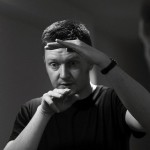 MARK COGAN:
MARK COGAN:
Mark Cogan studied film and video production at St. John’s central College, Cork from 1997-1999. Since then he has written and directed numerous short films. Many of these have screened at film festivals internationally. These include Hitch Hiker, F.P.D., To all the ships at sea, So that’s the way it is, 65 and Heart. Heart was the recipient of the best screenplay award at the Underground Cinema awards in 2010. This was followed by All Night Long, a drama featuring Rosie O’ Regan and Sebastian Thommen . His upcoming short, Partly Cloudy will reunite the characters from Heart in a new story.
http://web.me.com/mizenman/Site/About_Me.html
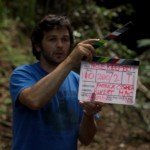 PATRICK O’SHEA:
PATRICK O’SHEA:
Patrick O’Shea studied Film in the Dublin Institute of Technology from 1995 to 1999. He was Head of Operations for Future TV Media Centre in Dublin for the year 2000, after which he moved to Luxembourg and worked in the film studios of Carousel Pictures and Deluxe Productions. From Luxembourg he returned to his home town of Cork City where he set up the production company Southernman Films. He has written and directed numerous short films, promo and music videos. ‘Tree Keeper’ is his feature directorial debut!
http://www.treekeepermovie.com
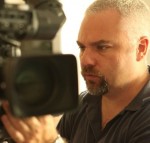 JASON KEANE:
JASON KEANE:
Born and raised in Cork, Jason Keane worked as a geologist and software engineer before moving to New York to study filmmaking. After graduating from the New York Film Academy, he worked as an assistant camera in New York before moving back to Ireland in 2009. He now works as a DP, camera operator and D.I.T., while also directing his own projects.
http://www.imdb.me/jasonkeane
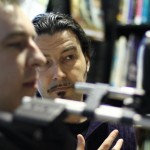 SEAN BREATHNACH:
SEAN BREATHNACH:
Sean Breathnach is an Irish film director, writer and editor. He graduated from NUIG in 1997 with a degree in Law and Economics. Since then he has directed more than a dozen short films and scripted several comedy shows, some of which were optioned in the UK. His films have been shown in film festivals world wide (Nevermore USA, New Jersey, Maine, Galway, Cork and more), some winning prizes on the way. His latest film, Searching For Ten, will be released this year.
http://www.seanbreathnach.com
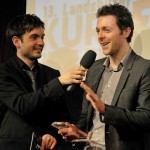 DAMIAN MC CARTHY:
DAMIAN MC CARTHY:
An award winning film maker from Cork, Damian’s films (including He Dies At The End, Hatch, Hungry Hickory, Never Ever Open It) have travelled to festivals worldwide. He is currently working on his debut feature film.
http://www.youtube.com/watch?v=MPYKigPU5RU

DAN O’CONNELL
is writer/director and the co-founder of egomotion, a Cork based filmmaking community and production company. His films range from documentary (Rock with your Cork Out, Letting Mr. Blue Sky In! – Flashmob) to drama (I Remember, Voices) but more recently he has focused on the horror genre. His previous film ‘Baby Boots’ featured in Cork Film Festival, Cannes – Court Metráge and Schull Fastnet Film Festival. Dan likes to surround himself with talent and learns more and more on each project big or small.
http://www.imdb.com/name/nm3810124/
The Interview: Part 1
1. What is the best part of the job?
Damian: Writing. First getting an idea and the process of fleshing it out into a story.
Jason: Power, glory, riches and the ladies! (sarcastic)
The process itself is great – working with other like-minded people to create something special. When the film is finally complete, be it your own film or one you’ve worked on, it’s great to be able to sit down with an audience and watch the finished product on a big screen.
Mark: For me the most rewarding part of the process is watching your idea come to life before your eyes. After it has only existed in your head for so long, it is a great experience to have life breathed into it by the actors and other talented people who help make it a reality. The sense of collaboration is terrific when all the right people are involved.
Seán: The diversity. I love the fact that I can spend some time alone, writing or coming up with ideas. Then I can collaborate with a talented crew to make the idea become more than the sum of its parts. You’re not sitting there doing the same thing day after day. And you get to work with some really great people. That moment when you declare your movie complete is very very satisfying.
Dan: The Money!
Seriously though, it’s probably when you get that idea, when something about it just makes you want to make the short. It’s a great motivator, coupled with the excitement that in a few months from now someone you don’t know is going to sit and watch it and hopefully pick up on that initial concept. And of course the craic, there’s a great atmosphere on set.
2. What is the worst part of the job?
Mark: Trying to get the project off the ground can often be a challenge. The frustrations and disappointments of trying to raise funds or pull many elements together can often kill any energy for the film. It’s very important to believe in what you’re doing and hope that your belief will inspire others to help you make it a reality.
Seán: The uncertainty and the search for finance. Both of those things are a real pain, and both are connected. It’s a tough deal finding funding for movies – shorts or feature length. There is no such thing as a no budget movie.
Jason: For me, definitely all the niggly organisational duties that a line-producer would normally perform. I need to hook-up with a talented producer!
Dan: I can’t think of one specific thing. There are little moments though, like that nagging feeling that everything is going to go wrong on set, or did we get that shot? Why the hell didn’t we get that shot! Of course one of the best parts is also one of the worst. The initial screening, the fear of rejection.
Damian: Rewriting. Once you have a decent draft done, and if you plan on directing it yourself, you have to really pay attention to what you’ve written and imagine yourself on the day directing these scenes. Where is the camera positioned? Is it clear what’s going on? What are the actors doing? If you can’t answer these questions then something’s wrong with the story and you need to get back into it and figure it out. Kill those darlings.
3. What are the chances of someone in the film industry here in Cork being able to earn a decent living at their craft? Do they need to travel?
Patrick: I think that depends on what their craft is. As a writer you can earn a decent living from anywhere as long as you have an internet connection and of course you are a decent writer! I don’t think it’s possible for a crew member, let’s say for example, a camera operator or a sound recordist to make a living in Cork alone working on films alone. This type of crew position isn’t in demand enough in Cork as there simply is not enough work to go around. Anybody I know making a living from these positions would generally have to jump around the country in order to make a living.
Personally speaking, as a writer/director I can’t earn a living in Cork on writing/directing films alone. I do, however, mix a number of crafts together and work in different areas to earn a living and still manage to mostly stay in and work in Cork. For example, while writing and developing fiction projects I will work as a writer/director/camera operator/editor on corporate and promotional projects and I also teach a film-making course for teenagers.
Damian: I don’t really think it matters where you live. If you’ve made an interesting, entertaining film it’ll travel. If you have enough stories in you, which you can tell with the locations available to you, then you probably wouldn’t feel the need to travel. I think if you wanted to make bigger films, action movies or something on a large scale and you were in a position to do that then you would have to go where larger productions are happenings. It all depends on the story you’re telling. Overall though I think they’re are much easier ways of making money than from filmmaking.
Dan: I’d say the chances are slim and none at the moment, you kind of have to love what you’re doing, but there does seem to be a certain momentum picking up here and I think the future for Cork is bright. You could do some corporate work (boring) or music videos to tide you over but really short film is a financially unrewarding industry. Lots of people seem to be moving towards the feature film now but even that is a lot of hard work to make a bob from unless you’re either extremely gifted or really lucky.
Jason: I’ll let you know in a year.
4. How do you go about getting attention for your work?
Jason: These days I think it is essential for every filmmaker to embrace social media. Whether you like it or not, it is a very necessary evil. Everyone should at least have Facebook, Twitter, Youtube and Vimeo accounts. Oh and of course a profile on IMDb too.
Damian: Enter film festivals and competitions. Come up with a strategy for the film. Research the festivals you’re entering. If you have a genre movie target the festivals of that genre first. Once the film has played in a few places and if it hasn’t been distributed, put it online and share it with whoever you think might watch it.
Dan: I must admit I’m rather lacking on that side of things, I send my stuff to local film festivals and an odd international one, but to be honest, it’s basically Facebook, and organizing a local screening of the film.
Seán: By making the best films you can possibly make. Then you take those films and you send them all over the world. And then, after some time, you put them up online. It’s one great advantage these days – you don’t have to wait around for someone else to distribute your movie. You can go ahead and do it yourself.
5. How difficult is it for film makers to finance their films? Is funding important?
Jason: Finding money for your films is always difficult, even more so now. It’s nice if you can get funding for your project, but if you can’t, it shouldn’t stop you from continuing anyway. Money also has a way of stifling creativity. Some of the most inventive and ingenious films ever made have been low budget productions. Necessity is the mother of invention.
Damian: If you need finance to bring the film to life the way you imagine it, then you should put the work into securing funding. If you know you can get it from your head onto the screen for very little money then why wait? It depends on how much time and effort you’re willing to put in.
I’m too impatient. I don’t think I could wait for someone to tell me whether or not I can make the film. By the time you’ve jumped through all the hoops and gotten a yes or no, you could have the film finished. There are too many stories I want to tell to be waiting around. I write scripts around locations I’m familiar with, special fx I can achieve, props I can find or make. This does of course mean you have to beg, borrow and steal and you also have to convince a crew that the film will be worth giving up their time for. I haven’t chased funding for any of my short films and I can’t see how it would have made a difference to how the film turned out or how well it’s done. They’ve all played in the film festivals alongside short films made for obscene amounts of money. They all play to the same audience.
Dan: Hmmm.
That’s kind of debatable. I guess I’m on the side of the love for the art, doing it on a zero budget is kind of what attracts me to it, I love to see how far I can push it without money, knowing that every one on set is doing it for the love of their art but what ends up happening is we spend way over the odds in hours labouring over our work and not getting paid. We’ve got bills! So a lot of the time it really slows down how much we can achieve within a given year. I would love to be able to spend a lot more time learning while doing and I suppose funding would be a great way to do that. But then, there are thousands of filmmakers all over the country trying to get funding for their films and only a few dozen awards, so if you were going to wait for funding before you did anything it would be some wait. Catch 22.
by SeanBreathnach | May 15, 2009 | Uncategorized
It’s here… Your time to shine. Entertainment.ie and Filmbase are offering you the chance to win some great prizes for doing something you love. All you have to do is send in a re-enactment of your favourite movie scene. It can be from any film and acted out in any way you please. From finger puppets to Cecil B DeMille – however you see it.
Far be it for us to suggest anything but – whether you bring us something funny or serious – above all let it be imaginative. The top prize is a digital filmmaking production equipment package worth up to €1,000 from Filmbase. Other prizes include Filmbase courses, membership and Film Ireland subscriptions.
For the full details about this competition, including the competition guidelines and prizes and to download the application form, visit www.entertainment.ie/favouritescene.

 Conor, tell us a little about yourself:
Conor, tell us a little about yourself:







